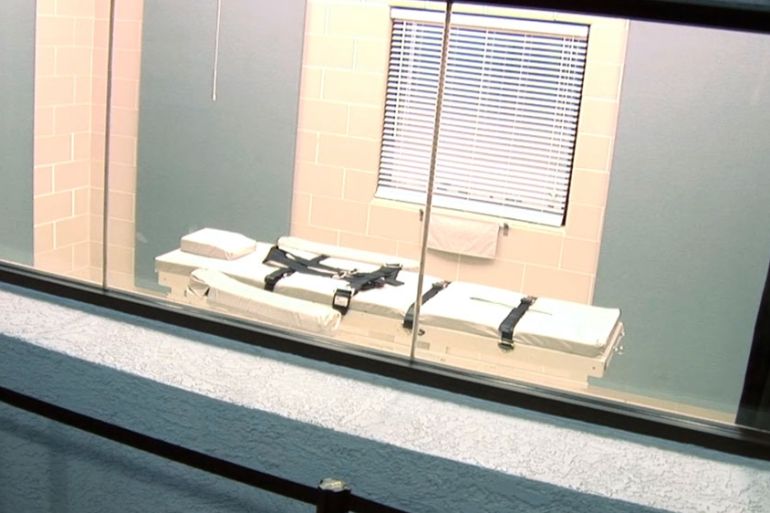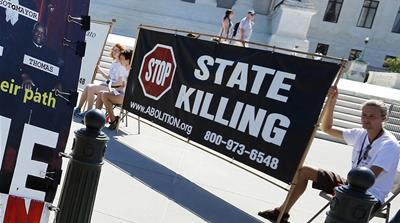US federal government executes second prisoner in 17 years
The execution came after legal claims over the mental fitness of the condemned were denied by the Supreme Court.

The US Department of Justice executed convicted murderer Wesley Purkey on Thursday, a Bureau of Prisons spokeswoman said, in the second federal execution in a week after a 17-year pause, over objections by his lawyers that he had dementia and no longer understood his punishment.
The execution had been blocked by a federal court, but the US Supreme Court on Thursday overruled it, just as it had done in another case on Tuesday.
Keep reading
list of 4 itemsRecord number of people executed for drug offences in 2023
Executions in Iran hit 8-year high in 2023
Australian writer Yang Hengjun sentenced to death on China spy charges
The court‘s 5-4 decision, which all five conservative judges joined, allowed the DOJ to execute Wesley Purkey despite the objections of his lawyers that he has dementia and no longer understands his punishment.
The Justice Department had originally planned to execute Purkey at 4pm EDT (20:00 GMT) on Wednesday.
The Federal Bureau of Prisons and the DOJ did not respond to Reuters’ requests for comment on when they were planning to carry out the execution.
Purkey, 68, was convicted in 2003 in Missouri of raping and murdering a 16-year-old girl before dumping her dismembered and burned remains in a septic pond.
It was the second time this week that the Supreme Court has overturned a lower court decision to block executions.

A lower court injunction, issued on Monday ahead of the scheduled execution of another convicted child murderer, Daniel Lee, was overturned by the highest court about 2am (06:00 GMT) on Tuesday. Lee was executed a few hours later in the first federal execution in 17 years.
Early on Wednesday, US District Court Judge Tanya Chutkan in Washington issued two injunctions, with one of them preventing the federal government from carrying out all scheduled executions.
Purkey’s petition was based on mental issues, including Alzheimer’s, and his being subjected to sexual and mental abuse as a child, his lawyers claimed. At 14, Purkey was diagnosed with schizophrenia, bipolar disorder, major depression and psychosis.
Last week, three mental health organisations urged US Attorney General William Barr to stop Purkey’s execution and commute his sentence to life in prison without the possibility of parole.
The Supreme Court‘s decision blocked both those injunctions, allowing all of the planned executions to proceed.
Two other men convicted of murdering children – Dustin Honken and Keith Nelson – are set to be executed on July 17 and August 28, respectively.